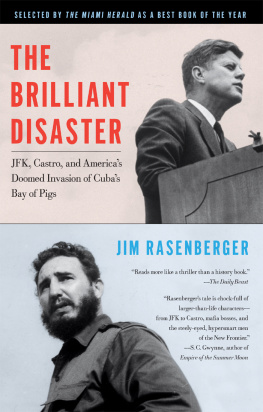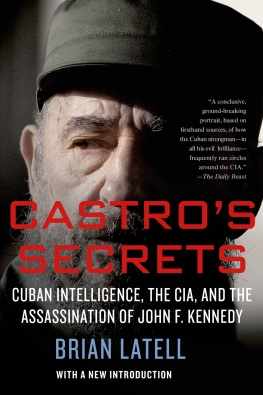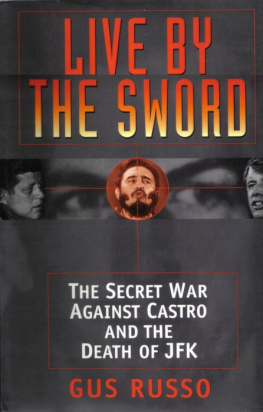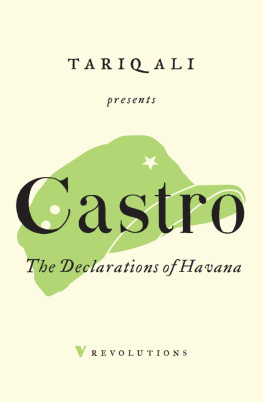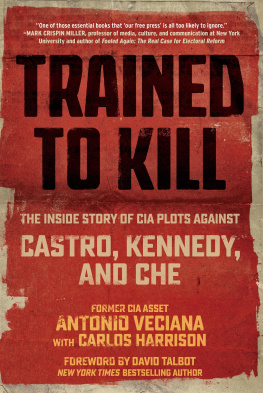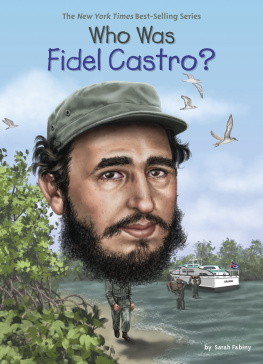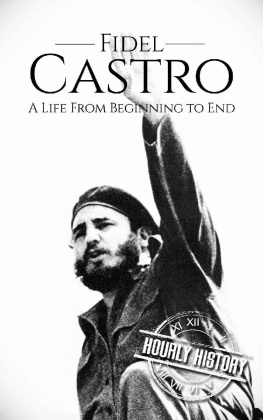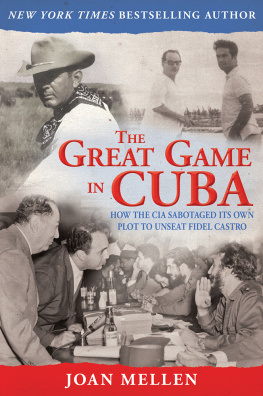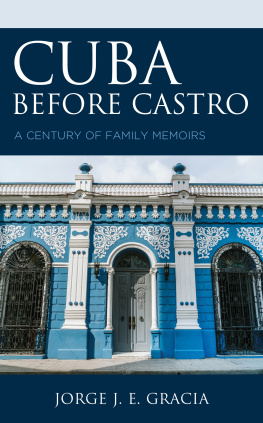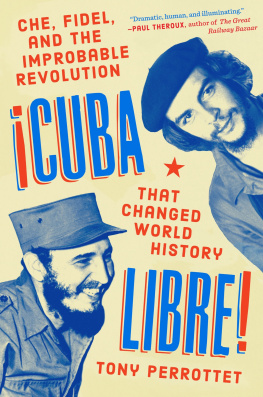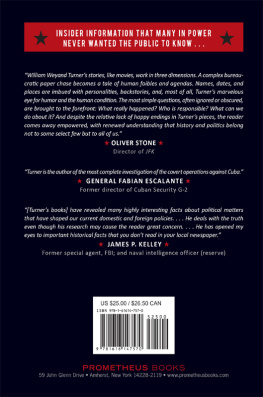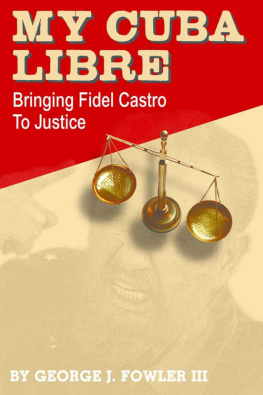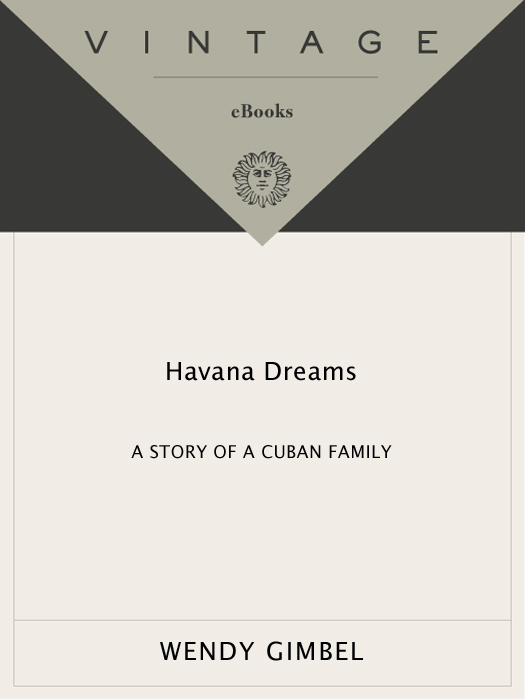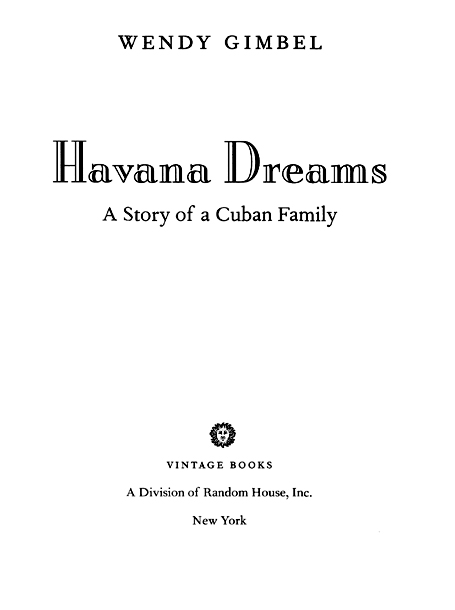WENDY GIMBEL
Havana Dreams
Wendy Gimbel made many childhood visits to the family of her paternal grandmother in pre-Castro Cuba. She later went on to receive a Ph.D. in English literature, and is the author of a scholarly book on Edith Wharton. Her articles have appeared in The New York Times, Vogue, Mirabella, The Nation, and other publications. She has two grown sons and lives with her husband in New York City.
Copyright 1998 by Wendy Gimbel
All rights reserved under International and Pan-American Copyright Conventions. Published in the United States by Vintage Books, a division of Random House, Inc., New York, and simultaneously in Canada by Random House of Canada Limited, Toronto. Originally published in hardcover in the United States by Alfred A. Knopf, Inc., New York, in 1998.
Grateful acknowledgment is made to Alfred A. Knopf, Inc., and Harold Ober Associates Incorporated for permission to reprint Havana Dreams from Collected Poems by Langston Hughes, copyright 1994 by the estate of Langston Hughes. Reprinted by permission of Alfred A. Knopf, Inc., and Harold Ober Associates Incorporated.
All photographs not otherwise credited are from the collection of Natalia Revuelta Clews.
Vintage Books and colophon are registered trademarks of Random House, Inc.
The Library of Congress has cataloged the Knopf book as follows:
Gimbel, Wendy
Havana dreams: a story of cuba / Wendy Gimbel.
p. cm.
I. Revuelta Clews, Natalia, 1925. 2. Castro, Fidel, 1927
Relations with women. 3. Fernandez Revuelta, Alina, 1956. 4. CubaHistory19331959. 5. CubaHistory1959. 6. MistressesCubaBiography.
I. Title.
F1788.22.B47G56 1998
972.9106 4 092dc21 98-14571
[B] CIP
eISBN: 978-0-307-78794-1
Author photograph Marion Ettlinger
www.randomhouse.com/vintage
v3.1
For my husband, Doug,
and my sons, David and Mark
Havana Dreams
The dream is a cocktail at Sloppy Joes
(Maybenobody knows.)
The dream is the road to Bataban.
(But nobody knows if that is so.)
Perhaps the dream is only her face
Perhaps its a fan of silver lace
Or maybe the dreams a Vedado rose
(Quin sabe? Who really knows?)
Langston Hughes
CONTENTS
PROLOGUE
P ERHAPS the indifference in the face of the customs man when I announced the reason for my visita search for my grandmothers Cubashould have warned me I might not find it. History, after all, had transformed her beloved country into a strange, unfamiliar place. But even if Cuba hadnt been different, the island to which she had taken me as a child had splintered, in my memory, into fragments of images: an aunts white house, lustrous in the sunlight, a curved iron grille; fanlights, carmine and cobalt blue; a dense garden shaded with Indian laurel, a refuge where I felt loved, secure. But I, too, had changed and become someone else. The sun-drenched island my grandmother and I had known together was as irrecoverable to me as the Cuba of Spanish galleons, silver buckles, and golden doubloons.
My early Cuban adventure resulted from a very American childhood. My parents, who lived in New York City, had started out as the sort of couple that made people think of romantic comediesan attractive Vassar graduate descended from New England Congregational ministers, and a handsome dreamer from Cubaa man with pale-blue eyes, whose ancestors were careful merchants from Barcelona.
They fell in love with each other, or thought they had. More probably, my father was infatuated with my mothers good looks, her energy and brains. When he looked at her, he thought he saw America; my mothers romance was with Europe and the Caribbean, with noble causes, the Spanish Civil War, and the dream of a better world. Two years after they met, my parents married.
It must have seemed a glamorous marriagethe parties, the long evenings with writers and artistsErnest Hemingway, Sherwood Anderson, the painter Rufino Tamayoand the exiled leaders of the Spanish Republic. But my father, who had once found my mother charming, soon thought her brittle and superficial; meanwhile, she began to find him tedious, too serious. The marriage hurtled backwards to its predictable end.
I was not even a year old when my mother fell in love with another man, and my small, private universe fell apart. Although I was too young to remember the cold, black moment of abandonment, I was defined through that experienceone that would lend a particular emotional texture to my childhood.
As a little girl in the forties and fifties, I rarely saw either of my parents. My mother had left me behindin New York City, where I was bornwhen she ended her marriage to my father. He had vanished as wellWorld War II had just endedand had gone to Lisbon on a mission for the State Department. From Portugal, he sent me many dolls: folk dolls made of white yarn and dressed in bright-red aprons. They came in pairs like other peoples parents. Qu muecas tan lindas! everyone said. What perfectly beautiful dolls! El debe quererte mucho. He must love you very much.
My Cuban grandmother, a melancholy woman with a will of steel, determined to separate me forever from these two frivolous people who had grown tired of each other. Her judgment of my mother was particularly severe. What could be said of a woman so selfish that she could fall in love with another man, leave her husband, and abandon her daughter forever? As compensation, or, perhaps, restitution, for the painful exile into which she believed my mother had delivered me, my grandmother decided that for part of each year, we would leave New York and visit her family in Cuba. Que nia ms linda! my Cuban aunts and cousins would chorus. What a beautiful child! Sabes que la madreuna americanala abandon. (Her mother, you knowan American womanabandoned her.)
My mothers familyformal Bostonians who loved Emersons essays and Sargents paintingssent me Christmas cards, scarves and gloves on birthdays, but I almost never saw them. I was often told that, when my mother had announced her future plans to Uncle Willie, the family patriarch, he had thundered: How dare you do this to your daughter? Where is Wendy? Willard Gardner Sperry, Dean of the Harvard Divinity School, Plummer Professor of Christian Morals, had no tolerance for a niece who had sacrificed her marriage and an infant child to follow the heady course of her passions.
Hadnt I, after all, been hijacked by my fathers family? In Cuba, aunts and cousins chattered about me as they played mah-jongg. Their own lives were languid games played under the old, traditional rules. I must have been almost an adolescent when I first began to understand that, to my Cuban relatives, I was a wild card with a foreign design which had suddenly appeared in a familiar deck. From where they sat, it seemed impossible to play with such a card, but they were affectionate enough to try. Maria Gloria tena toda la razn en traerla a Cuba. My grandmotheror so they believedhad every good reason to take me to Cuba.
I N THE middle of the nineteenth century, my grandmothers father, Don Jacinto Alsina, emigrated from Barcelona to Santiago, Cuba, where he managed to secure a comfortable fortune in sugar. Around 1880 he married Maria Josefa de la Presilla (Mam Alsina, as everyone called her when she was elderly), the daughter of a prosperous sugar plantera pampered, headstrong young woman who had first seen the light at Las Peladas, her grandfathers vast plantation outside the city of Santiago. At Las Peladas, the slaves cut the sugar cane, the women embroidered handkerchiefs, and the men occupied themselves with rum and cigars.


